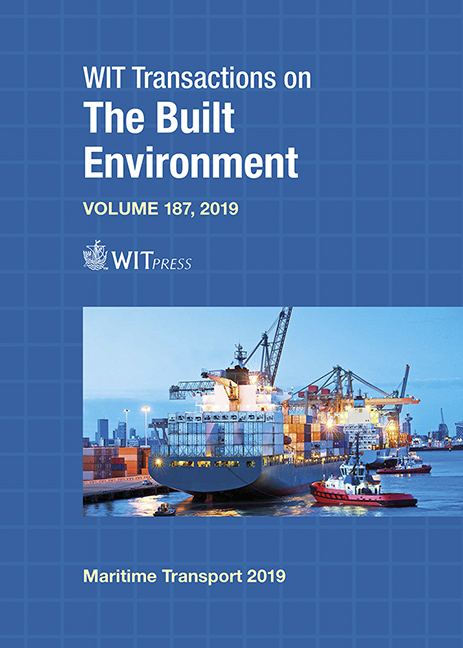GLOBAL SOYBEAN TRADE, SUPPLY CHAIN AND TARIFFS
Price
Free (open access)
Transaction
Volume
187
Pages
12
Page Range
239 - 250
Published
2019
Size
456 kb
Paper DOI
10.2495/MT190221
Copyright
WIT Press
Author(s)
CHANGQIAN GUAN, SHMUEL (SAM) YAHALOM, LUKE GERMANAKOS, SAMUEL LAPAGE, BRENDEN MCKEEVER
Abstract
Soybean products are one of the main ingredients in Asian diets. In addition, soybeans are used as feed stocks and pressed to extract oil in food consumption. The Asian market place, namely China, Japan, and Southeast Asia, accounts for the majority of the world’s soybean demand. The United States and Brazil are the world’s largest producer of soybeans, followed by Argentina, representing a vibrant international market. China accounts for one third of the total worldwide demand for soybeans and 60% of the total seaborne import, the same percentage for US exports just a year ago. As most of the soybean productions are located in distant inland areas, an efficient multimodal transportation system is essential to facilitate the soybean export from origin to importing countries. For example, soybeans are produced and harvested in the agriculture heartlands far away from coastal ports for both the US and Brazil, the configurations of their respective supply chain to transport their soybeans from production to overseas ports at destinations provide a unique perspective to show how each country compete for the most important soybean market, China. The objectives of this paper are to exam the world soybean market and supply/demand relationship among major trade partners with emphasis on the US and Brazil export to China, identify major characteristics of the multimodal soybean supply chain in the US and Brazil, compare and contrast modal shares with regards to trucking, rail, barge, and ocean transport, and apply a total landed cost model to analyse cost competitiveness of the soybean supply chains both in the US and Brazil.
Keywords
agribulk transportation, soybean trade, supply chain, total landed cost, tariffs, multimodal transportation





